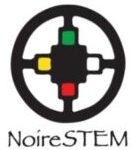Developing Evidence-based Black Males in STEM initiatives
This training session is designed to provide tools for educators to address the declining retention rates of Black males in STEM degree programs and careers. Through the utilization of Whiting’s (2006) Scholar Identity in Black Males framework, the session will address and deconstruct stereotypical identities ascribed to Black males and equip participants to promote scholar and science identities. This workshop provides a toolkit to cultivate self-worth, self-efficacy, and a sense of belonging.
Developing Pathway Programs
This training session is designed to provide tools for educators to address the declining retention rates of Black males in STEM degree programs and careers. Through the utilization of Whiting’s (2006) Scholar Identity in Black Males framework, the session will address and deconstruct stereotypical identities ascribed to Black males and equip participants to promote scholar and science identities. This workshop provides a toolkit to cultivate self-worth, self-efficacy, and a sense of belonging.
Diversity, Equity, and Inclusion in STEM
This training session is designed to provide tools for educators to address the declining retention rates of Black males in STEM degree programs and careers. Through the utilization of Whiting’s (2006) Scholar Identity in Black Males framework, the session will address and deconstruct stereotypical identities ascribed to Black males and equip participants to promote scholar and science identities. This workshop provides a toolkit to cultivate self-worth, self-efficacy, and a sense of belonging.
Growth Mindset
There are two primary mindsets that guide how individuals navigate life: growth and fixed. According to Carol Dweck, a growth mindset involves the belief that one’s basic qualities and abilities can be cultivated and strengthened through one’s efforts. Conversely, individuals with a fixed mindset believe that abilities and intelligence are innate and unchangeable. Mindset beliefs play a role in students’ academic persistence and performance. Utilizing a critical-race, culturally-relevant approach to Growth Mindset development, this workshop is culturally appropriate for African American/Black, Hispanic/LatinX, and Native American students.
By the end of this workshop, participants will be able to identify if their students have adopted more of a fixed or growth mindset regarding their ability to learn STEM concepts. Faculty will be introduced to a validated Growth Mindset Scale to identify these mindset beliefs. This Growth Mindset workshop is unique from traditional workshops as such workshops do not take into consideration how students from stigmatized and marginalized social identity groups (i.e. race, gender, class, etc) experience stress when asked to perform challenging tasks that converge with known stereotypes or biases. Therefore, this session will challenge participants to identify and address their implicit biases, pedagogies, and racialized practices, as well as provide them with strategies to minimize triggers for stereotype threat.
Research/Grant Proposal Development using Critical Race Mixed Methodology
Researchers who seek to explore race-related issues in STEM education should consider utilizing a Critical Race Mixed Methodology (CRMM) approach. CRMM is a combination of traditional mixed methods design with Critical Race Theory (CRT). The goal of CRMM is exposing issues of racism, challenging racial structures, and promoting social change through the use of a mixed methods design (DeCuir-Gunby, 2020). This workshop will introduce participants to the central tenets of CRT, as well as the usefulness of these components in advancing STEM education in the study of race and racism. Participants will also be introduced to traditional mixed methods approaches and how to integrate CRT throughout all stages of the mixed methods research process.
STEM Teaching and Learning (Pedagogy & Curricula)
This session focuses on culturally responsive teaching in STEM classrooms. Culturally responsive teaching means using students’ customs, characteristics, experiences, and perspectives as tools for better classroom instruction and engagement. Education researcher, Geneva Gay (2000), stated “when academic knowledge and skills are situated within the lived experiences and frames of reference for students, they are more personally meaningful, have higher interest appeal, and are learned more easily and thoroughly.” Instructors learn anti-racism and culturally responsive instructional practices that allow students of color to see themselves as belonging in STEM majors and careers.
Key Features:
- Anti-racism
- Culturally Relevant Pedagogy
